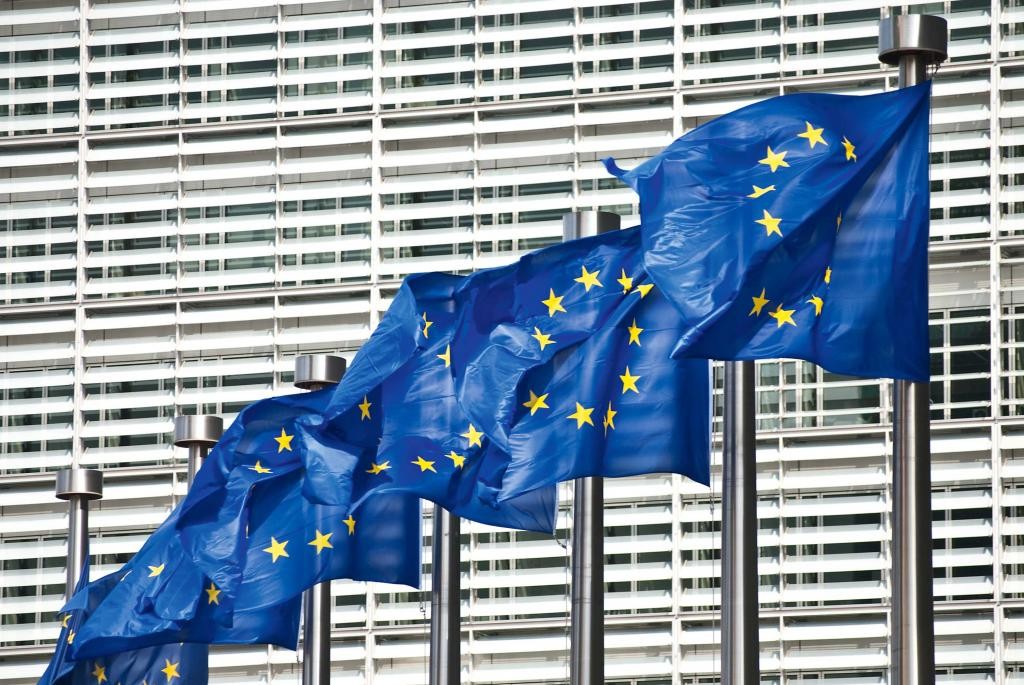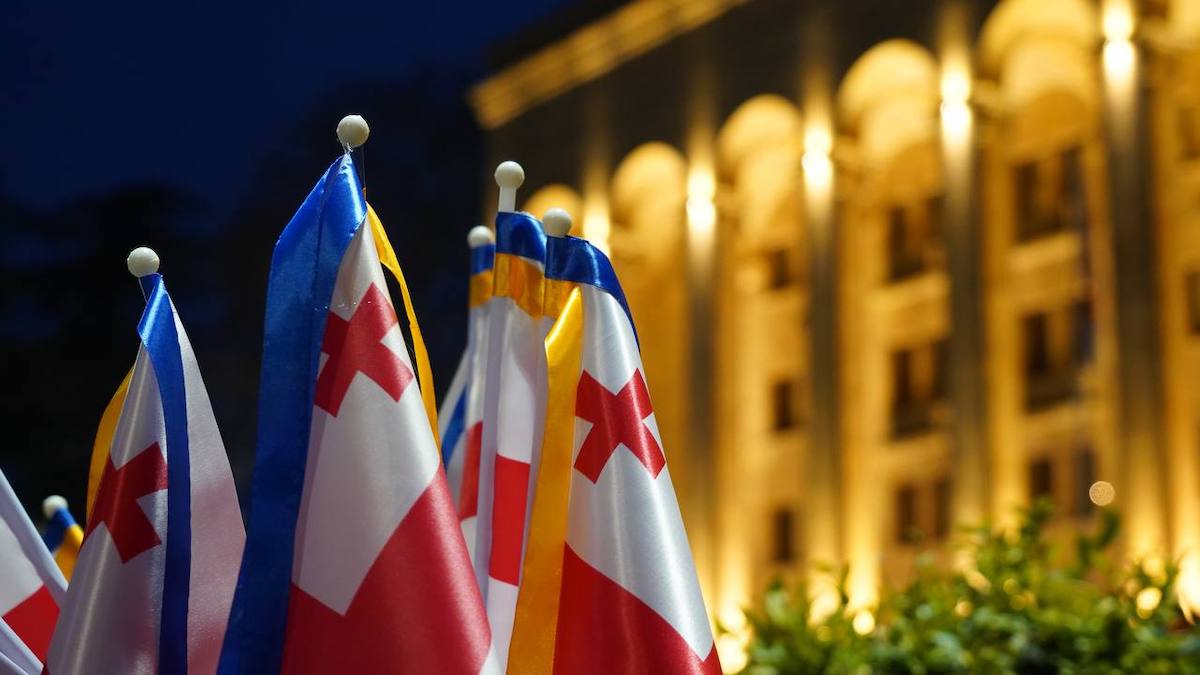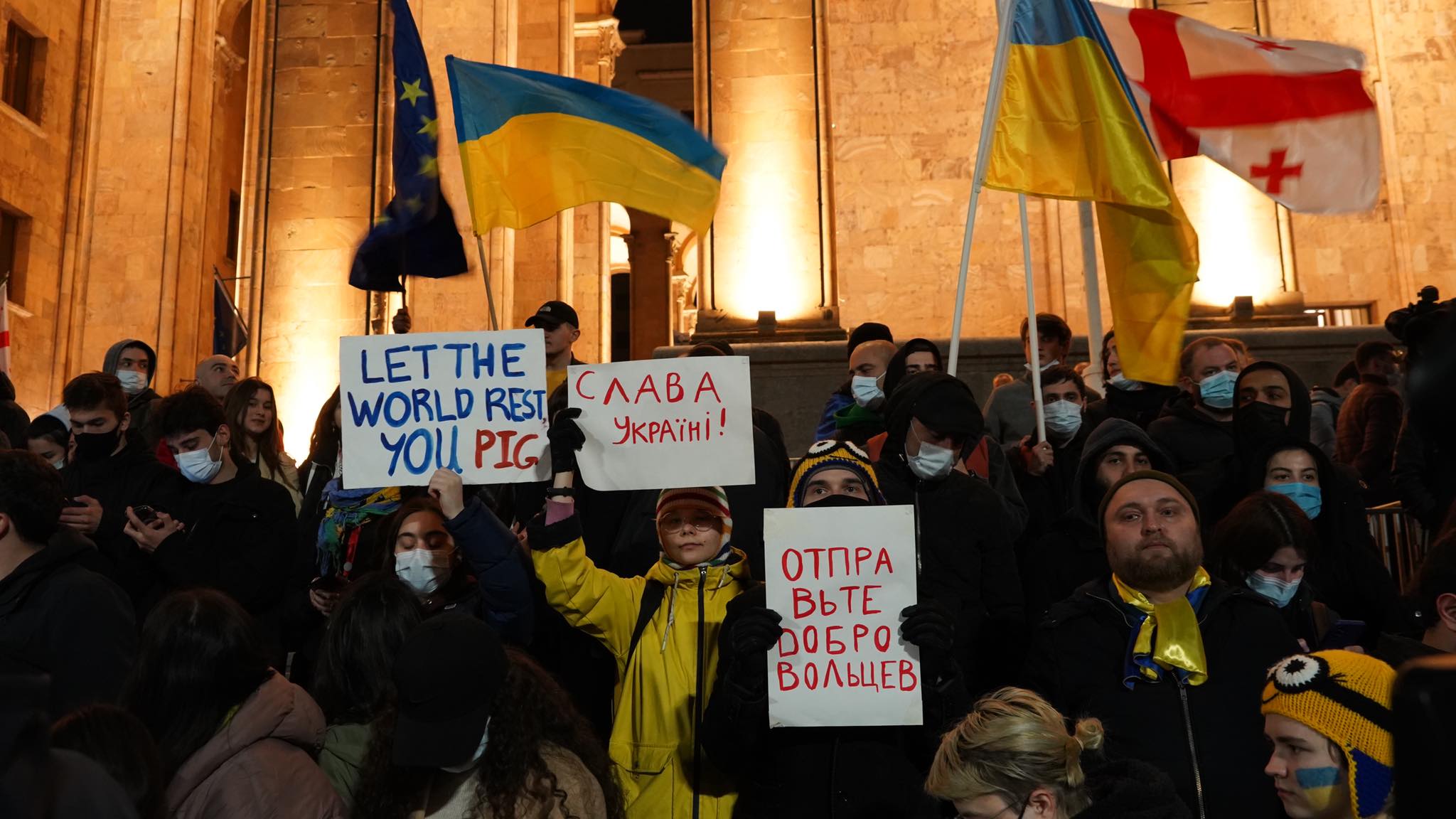What’s in the EU membership questionnaire and what are the chances for Tbilisi?
Georgia’s EU membership questionnaire
The Georgian government has about two weeks to complete the self-assessment questionnaire sent by the European Union. Based on the authorities’ responses, the European Commission should assess whether Georgia is ready to become an EU candidate and then begin the complex and lengthy process of EU accession. What are the country’s chances?
Georgia, Ukraine, and Moldova are waiting for the EU candidate status. All three countries simultaneously applied for EU membership. This process was accelerated by the war in Ukraine.
Georgia applied for EU membership on 3 March. On April 11, it received the first part of the questionnaire. The questionnaire was also received by Ukraine and Moldova, and they have already filled it out.
What is the EU asking Georgia for? Why is this survey important? How is its content checked? What will happen after Georgia successfully takes this step? What should the country do now to complete the process of European integration?
JAMnews answers these and other questions together with Vano Chkhikvadze, head of the Open Society Georgia European Integration Foundation.
What is the EU questionnaire?
The EU Questionnaire is an official tool that is sent to a country after it has applied for membership.
This questionnaire assesses whether a country is ready to accept EU candidate status. This is the first step towards membership. Then the most important, complex and lengthy process begins.
However, the survey itself is also a very important step.
The questionnaire is complex and covers almost all areas: politics, economics, human rights, reforms, institutional and administrative capacity, justice, agriculture, competition, public procurement, education, culture, etc.
- Georgia’s plan to apply for EU membership by 2024
- The future of Georgia Project: Georgia’s unfinished search for its place in Europe
The number of questions in the questionnaire varies by state. For example, 4,560 questions were sent to Croatia, 4,666 to North Macedonia, 2,178 to Montenegro, and 2,486 to Serbia.
Georgia received a questionnaire consisting of two parts. The first part, consisting of political and economic criteria, was made public at the request of civil society and is known to contain 369 questions. This is a 42-page document.
There is also a second part of the questionnaire, which deals with compatibility with EU legislation on industry topics and sectors. We do not yet know anything about this part of the questionnaire because the government has not made it public.
JAMnews asked the Ministry of Foreign Affairs about this part of the questionnaire, including, for example, how many questions there are, but we were told that “all information about EU membership will be known on April 29, after the commission meeting”.
Therefore, at this stage, we do not know exactly how many questions the Georgian government needs to answer. The second part of the questionnaire is probably a much larger document, about 280 pages (the first part, which has 369 questions, takes up 42 pages – JAMnews).
What is the European Commission asking Georgia about?
The published part of the questionnaire consists of political and economic parts.
The political part consists of the issues related to democracy and the rule of law, the constitutional order of Georgia, parliament, civil society, the judiciary, anti-corruption policy, human rights, and personal data protection.
In the economic part, the issues of the functioning of the commodity, labor and financial markets, the banking sector, the capital and money market, and non-banking financial institutions are covered.
For example, the European Commission asks Georgia how the court, parliament, and state apparatus work in the country? How independent are they? It also requests a list of institutions that are considered independent under the Constitution, and asks what are the guarantees for their independence? Also, how transparent are judges appointed in the country?
The most critical part consists of the questions about the court – 60 questions, from 75 to 135. This is the eighth chapter of the reform of the judiciary. The European Commission asks:
- Are judges both internally and externally independent in dealing with individual cases?
- Is each instance independent of a higher instance?
- How does the public perceive the independence of the judiciary and the autonomy of prosecutors?
The questions also concern the institution of the Public Defender. For example, does the Public Defender have access to all official documents?
Many questions concern human rights. The European Commission asks Georgia, for example, how well does the country protect such fundamental rights of citizens as freedom of assembly, expression, and prevention of torture?
- Are a person’s freedom of conscience and personal life protected?
- How equal are the citizens of Georgia?
- How protected they are from discrimination based on gender, ethnicity, religion, sexual orientation, or any other grounds?
- Can same-sex partners start a family?
- What the country is doing to protect the rights of ethnic and sexual minorities. How effective is it in investigating crimes against them?
Is the right to freedom of assembly exercised freely and without any problems, for example, when organizing gay pride or similar events? Please provide information on any similar events planned in the last 3 years [Question #237]
The European Commission asks in what conditions do people with disabilities live? How well does the environment meet their needs?
Do police, prison and border services, and other law enforcement officials receive specific training on human rights, including training on the rights of women, children, the elderly, persons with disabilities, minorities, and LGBTQ people? [Question #184]
In the section on freedom of expression, the European Commission asks:
What are the working conditions for journalists? Are there rules and practices that guarantee the independence and safety of journalists? [Question #219:]
How important will the content of the questionnaire be? Will the answers be checked?
Vano Chkhikvadze, head of the European Integration Program at the Open Society Georgia Foundation, says that since all three countries are now on a non-standard path to EU membership, the EU questionnaire is relatively short and will have more political overtones:
“Given that the EU has to make a decision soon and it already has information about Georgia, the focus has been on the political part and the questions are mostly in a direction where there are many challenges in Georgia”.
What the government’s response to the EU will obviously be important, he said. But, not essential. According to him, it will be difficult for Georgia to fill in several chapters, for example, in terms of justice, and personal data. More precisely, obviously, it will fill them in, but the answers will not be satisfactory.
We asked Vano Chkhikvadze how the EU questionnaire is checked, for example, can a country lie in the answers?
According to him, there are a number of verification mechanisms, including clarifying questions, which, under the standard procedure, can sometimes take up to six months. Currently, in addition to clarifying the answers to questions, there are also assessment missions in the country that evaluate progress on the ground. However, now that the procedure has been accelerated and this is not happening, this does not mean that the EU does not have information about Georgia:
“The EU already knows about Georgia because there is an EU office here that writes political reports. There are embassies of EU member states that provide information to their capitals. Therefore, I do not consider it a correct calculation to write incorrect information and, to tell the truth, I do not expect the Georgian government to be deceitful in anything.
What happens after the questionnaire is submitted? Can the EU membership be denied?
After receiving the questionnaire, the European Commission prepares an opinion, and all 27 EU member states must unanimously decide whether the country is ready or not ready to obtain a candidate status.
The Georgian government has one month to complete the questionnaire. Vano Chkhikvadze assumes that the answers will be sent symbolically on May 8-9, the Day of Europe.
The Council of the Member States of the European Commission is due to meet on June 24-26. Given the context and situation in which the accession process began, Vano Chkhikvadze suggests that Georgia will not be relinquished of its candidate status, but it will be more of a political decision than a test of Georgia’s readiness:
“We may be asked to fulfill certain conditions in order to obtain candidate status. This scenario is more realistic than rejection. For example, we may be asked to first deal with the procedure for appointing judges to the Supreme Court – or the obligations under the so-called agreement of Charles Michel agreement.
It will not be a denial, it will not be a confirmation, it will be a postponement, a political decision. The moment of truth is coming in Georgia’s relations with the EU. We, too, must be right in our answers, and the EU must make a decision based on values and merit. It is very important.
What happens after candidate status is granted?
Once candidate status is granted, the EU will start discussing how to start accession negotiations. Here, too, all 27 countries must unanimously agree to begin the process.
“Negotiations are starting in different areas. For example, to what extent Georgian legislation aligns with EU legislation in the field of statistics or in the field of environmental protection”, says Vano Chkhikvadze.
The negotiations include 35 chapters and all chapters must be closed to the end. This means that this process will take years. It is possible that one of the Member States will require the already closed chapter to be opened and re-examined.
For example, Croatia, which most recently joined the EU (in 2013, the last enlargement of the EU), took about 10 years to join.
And the last stage, after everything is over, is a symbolic moment, this is the signing of the membership agreement between the member states and the candidate country.
What should the government do now to complete this process?
Vano Chkhikvadze says that a complex and long process awaits Georgia, so it is not worth expecting that in a few years Georgia will become a member of the European Union: “However, we will definitely get there”.
According to him, now, in addition to working on the questionnaire, members of the Georgian government should hold meetings in the capitals of the EU countries. Moreover, several EU member states, 3-4, are very skeptical about Georgia’s accession:
“The government of Georgia should now practically move to the capitals of the European Union. There must be visit after visit. The prime minister, the president and the speaker of parliament should try to meet with their counterparts.
All that can be involved in advocacy in the capitals of the EU member states. Especially in countries that are on the list of skeptical countries”.
At this stage, the civil sector is not involved in the processes. It has limited itself to statements. No alternative report is prepared so as not to interfere with the process:
“NGOs are not going to turn a blind eye to anything. This can cast a shadow on the process. So we decided to abstain. So that it does not turn out that non-governmental organizations do not want progress on this issue. So that labels are not hung on us, there was an attempt to do this”, says Vano Chkhikvadze.
According to him, in 2018, the non-governmental sector filled out the 23rd chapter of the questionnaire sent to Serbia, which dealt with human rights, justice, and the fight against corruption.
“We appreciated the reforms carried out by Georgia, and I think that this experience should not be lost. I have high hopes that the Georgian government will take advantage of it”, Vano Chkhikvadze said.
JAMnews tried to get more information about the process at the Ministry of Foreign Affairs of Georgia. The press service of the department replied that all questions related to this process would be answered two days later, on April 29, after the meeting of the commission.





















